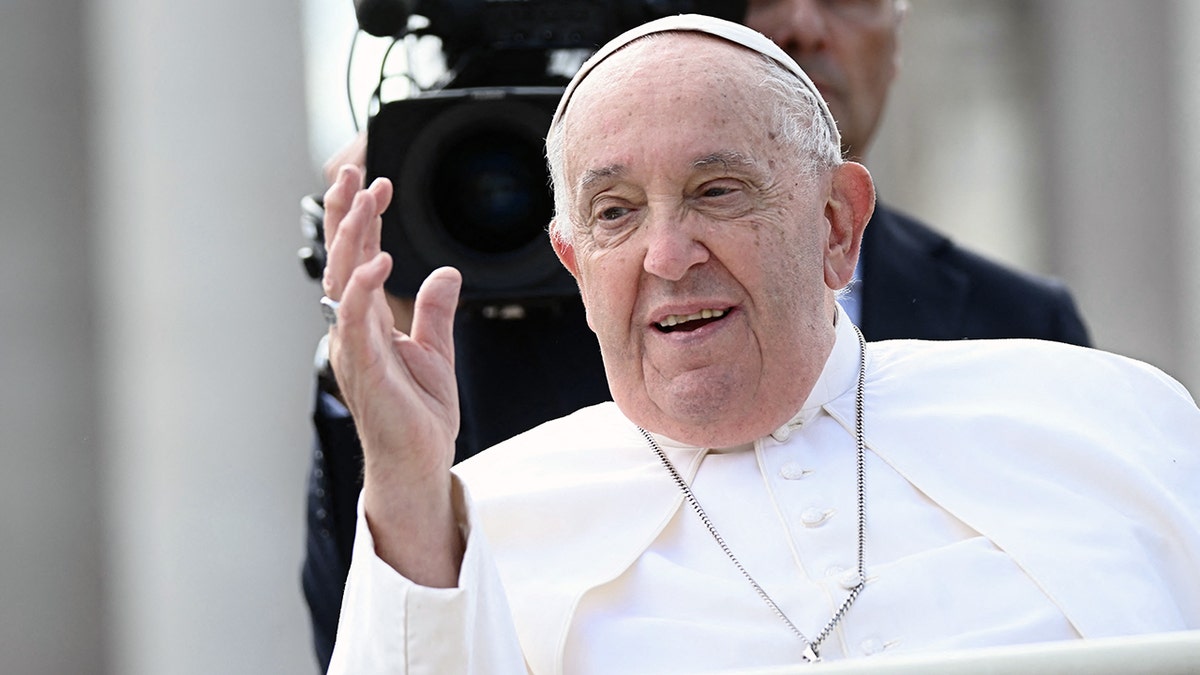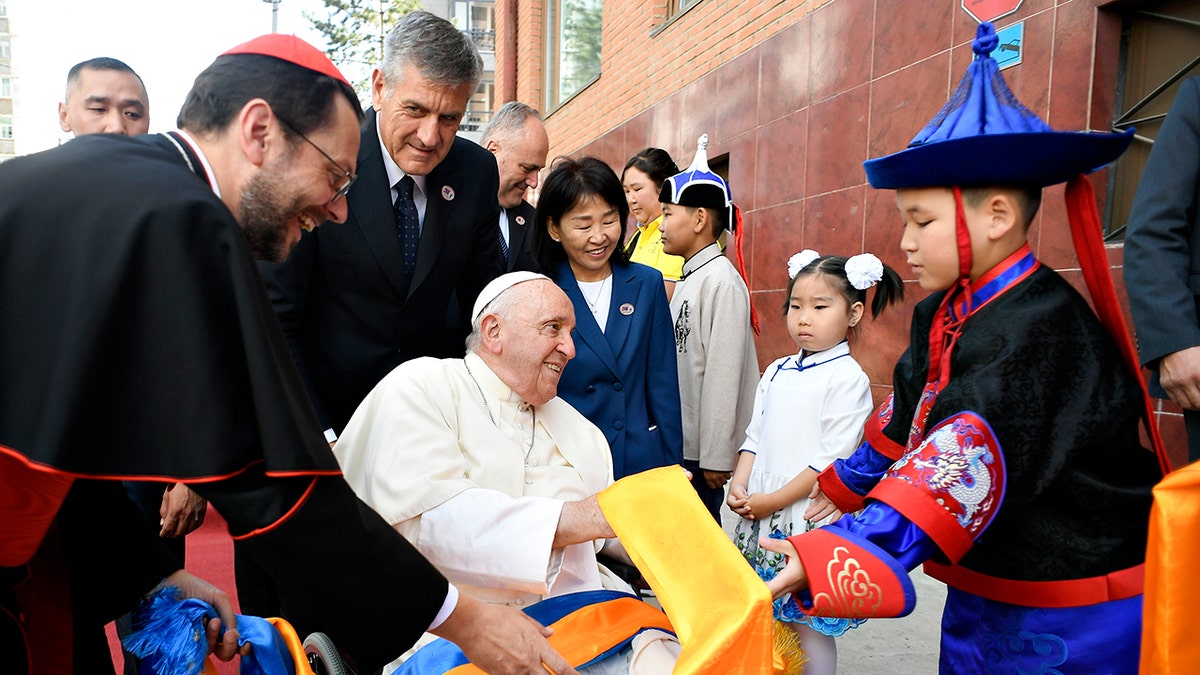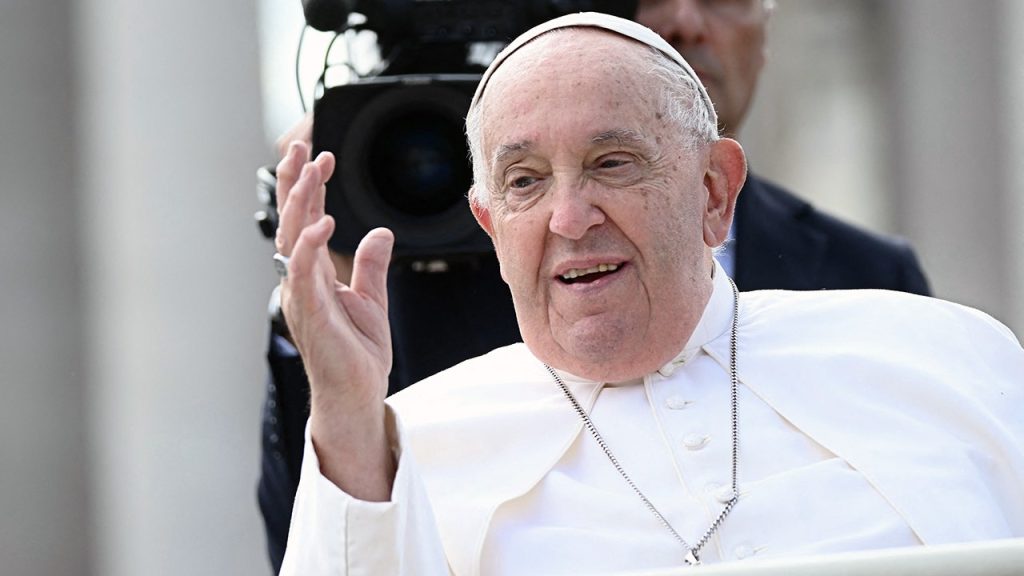Over the course of his 12 years as pontiff, Pope Francis’ papacy has been both highly regarded as influential and scrutinized as modernized and anti-traditional.
Leaving behind a legacy of expansion, Pope Francis ministered to shape the Catholic Church’s future and scale its reach beyond areas of focus in both the U.S. and Europe.
“If you think about how he has approached appointing cardinals,” Tim Gabrielli, associate professor and Gudorf chair in Catholic intellectual traditions at the University of Dayton in Ohio, told Fox News Digital. “He’s been very intentional about that.”
POPE FRANCIS REVEALED BURIAL WISHES JUST DAYS AFTER BECOMING POPE IN 2013

Pope Francis was elected pope on March 13, 2013. (Filippo Monteforte/AFP/Getty)
Pope Francis created cardinals from 24 nations that had never had one before.
“He was calling attention to places that are overlooked,” Gabrielli said. “He was saying, ‘The church is here, too, and the church here has a voice. The church here should be paid attention to.”
“I think it’s been very significant,” he added.
Gabrielli asserts that Pope Francis was playing “a long time” with the Catholic Church by expanding its own broader geographical reach.
“The church is growing most rapidly in Africa, and we don’t think about that as much in the Northern Hemisphere,” he said. “Resources for the future of the church are in those places.”
THEOLOGIAN ON ‘CONCLAVE’ ACCURACY, EXPECTATIONS FOR NEXT SECRETIVE EVENT AFTER POPE FRANCIS’ DEATH

Pope Francis traveled to areas of the world where popes didn’t often visit. (Vatican Media via Vatican Pool/Getty Images)
In 2017, Pope Francis convened a Synodal Assembly, a gathering of bishops, to discuss the Amazon region and climate change, which was a focus during his sovereignty.
“It strikes me as Pope Francis saying, ‘Hey, this region that is largely seen as a suppository of resources, whatever we can exploit from this great lush region, well, there’s a church operating there. There are people living there who we don’t pay much attention to,’” Gabrielli said.
“That is in tune with his emphasis on economic exploitation,” he added.
Gabrielli believes Pope Francis’ first words after his election spoke to his broader mission as pontiff.
WHAT IS THE PAPAL CONCLAVE: INSIDE THE ANCIENT PROCESS OF CHOOSING THE NEXT POPE
Pope Francis died on April 21, 2025. (AP Photo/Gregorio Borgia)
“Brothers and sisters, good evening,” Pope Francis said in his address to Rome on March 13, 2013. “You know that the charge of the conclave was to give a bishop of Rome. It would seem that my brothers went to the end of the world to choose him.”
Pope Francis, born Jorge Mario Bergoglio, was the first pope in history from the Global South, hailing from Argentina.
Gabrielli said his remarks, coupled with the meticulous expansion of cardinals, reflect Pope Francis’ vision of the church in every place.
CLICK HERE TO GET TO THE FOX NEWS APP
“The church in the U.S. has had a strange way of thinking of itself as something kind of exceptional,” Gabrielli said.
Highlighting a new focus on regions often considered “flyover countries,” Gabrielli said Catholics and non-Catholics will see Pope Francis’ impact through his successor.
“This push to internationalize the cardinal or to visit places the pope wouldn’t normally visit is planting seeds there that over time will lead to a deeper sense of the international church,” Gabrielli said.

